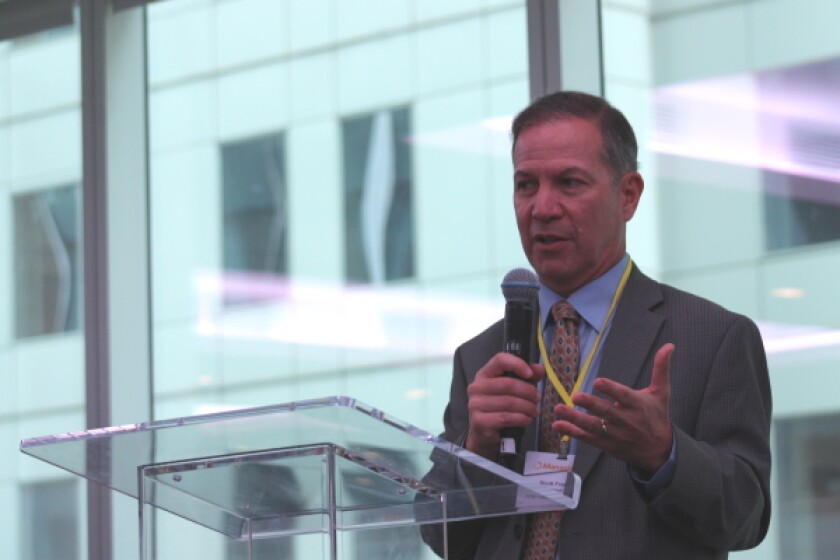AT&T’s intellectual property CEO took the stage at Managing IP’s Intellectual Property and Innovation Summit on May 24 to talk about the importance of IP and the need for more global co-operation on patent, trademark and copyright matters.
During his keynote talk, Scott Frank – who is based in Atlanta but flew to New York to attend the event – said IP was a critical component of societal development.
“I don’t know how many people appreciate what we do and how important it is to civilisation, but I believe it’s fundamental to our existence,” he said.
“IP is what drives society forward and is what gives us most of what we need in the physical realm. Getting a COVID vaccine out as fast as possible, for example, isn’t possible without IP.”
He added that there were a few problems with the IP system, however. One of those was the lack of education and general knowledge on the subject across the US and much of the world.
“We all know how important IP is, but I would venture to say that 95% or more of the people in this country and around the world wouldn’t have the foggiest idea of that fact,” he said.
Another problem, he said, was collaboration, pointing out that getting ideas from heads into hands was often expensive, time-consuming and complicated. He noted that the whole process was intimidating and that it needed to be made more accessible.
On that note, Frank said, the IP profession needed to do more to foster diversity and inclusion. He argued that a lot of people with great ideas, particularly minorities, found it hard to see ideas realised and to break into the IP ranks.
“There’s a gigantic opportunity to help those people too,” he said. “And there’s a strong business driver there – because to truly get the best and get the best ideas developed, you need diversity and inclusion.”
Global outreach
He added that GLIPA was built on three pillars: driving awareness and education, enabling ecosystem collaboration and facilitating diversity and inclusion. These mandates, he said, should help address some of the key IP system problems across the globe.
Frank said that as with the USIPA, he wanted as many people to join GLIPA as possible, including lawyers, in-house counsel, inventors and academics, to help spread IP knowledge.
“We were looking around at other IP organisations and realised there were a bunch that represented lawyers and corporations, but none that represented citizens. When we looked at it from that angle, it became clear why some of the problems I talked about existed.”
The IP chief said he was currently on a recruitment drive to get as many people as possible involved in the GLIPA committee, the body set up to establish the global organisation.
The committee currently has more than 100 members, including judges, IP heads and partners (and this reporter), across the Americas, Africa, Asia, Europe and Oceania.
The organisation was being put together in partnership with WIPO. Frank noted that Lisa Jorgenson, WIPO’s deputy director general for patents and technology, was a USIPA board member, as were former USPTO directors Dave Kappos and Andrei Iancu.
Frank noted that GLIPA didn’t have a website, but said interested parties could visit the USIPA site for more information.
In-house counsel, private practice lawyers and other professionals gathered on May 24 at Managing IP’s Intellectual Property and Innovation Summit for panels on patents, trademarks, trade secrets and other IP issues.











